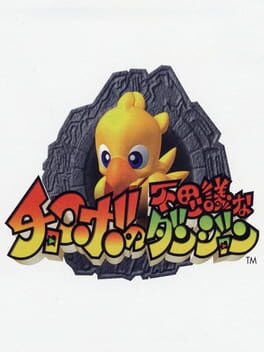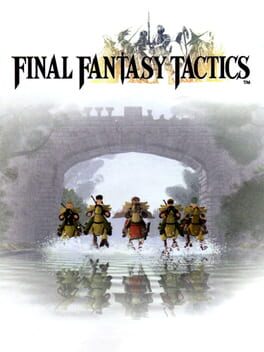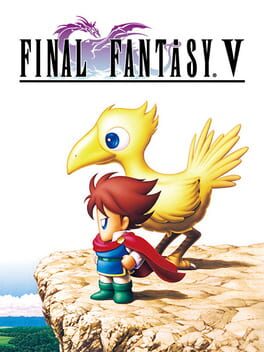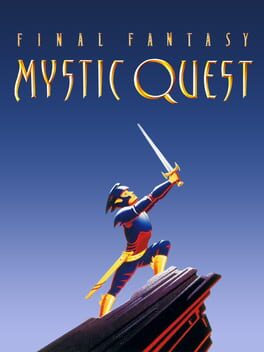

Final Fantasy VI is the sixth main installment in the Final Fantasy series, developed and published by Square. It was the final title in the series to feature two-dimensional graphics, and the first story that did not revolve around crystals. The game gives players up to fourteen playable characters, the largest cast in the series, and features the Active Time Battle pseudo-turn based menu command system. A party can consist of up to four characters, though some events require the player to assemble three different parties of up to four and switch between them. Each character has a unique command ability, such as Terra's Trance, Locke's Steal, Edgar's Tools or Sabin's Blitz, and can also learn Magic spells from earning AP from battles with magicite equipped. Each character's rare Desperation Attack will randomly activate after using the Attack command when at critical health.
Also in series
Reviews View More
My gripes are minor. Some of the characters are less useful than others, the battle system can feel tedious with some obtuse systems in play, and the game peaks at Kefka's ascension to godhood, the post-apocalyptic round-up of heroes into the endgame being a bit unmemorable, and a brutal final dungeon that punishes you for not using your full party frankly sucks a bit.
These are blemishes on what's otherwise a masterful game. It can feel a bit dated but otherwise holds up admirably.
Final Fantasy VI is often compelling, but it's also a deeply confusing experience. The canonization of this game has sterilized the discourse around it somewhat, transforming Final Fantasy VI into a more coherent game in the popular discourse than it actually is. While the frequently jarring shifts in tone and theme are often exciting, they also serve to disguise how often the game drops the ball on some of its many subplots and characters. People like to fondly recall Kefka the nihilistic clown but rarely bring up, say, Ultros the anachronistic squid, a badly-delivered recurring joke enemy who, weirdly, shares a similar amount of screentime with Kefka.
The radically open-ended design of this game, while a marvel in its own right, also has the unintended effect of deprioritizing many of the tertiary characters. The philosophy behind FFVI's narrative was the game would be a true ensemble storyline, with no characters taking precedence over others, but this is flatly untrue. Some characters in this game either have no possible room to grow or are thinly written, contrasted against other characters whose lives are intertwined with the various narrative pieces driving the game forward. Would anyone really argue that Gau is as important or well-characterized as Celes? Or that Sabin has as much going on as Terra?
The lack of dimensionality in some characters versus others isn't a problem in the abstract, but because this game commits itself to never giving any of its cast a 'starring' role, no one character's storyline ever goes that deep. Even worse, you also never really get that 'I'm hanging out with these characters' feeling you do in the other games. The cast ends up feeling one-dimensional and indistinct from one another.
Final Fantasy VI's inconsistent tone also often undermines its best moments. The subplot in which Cyan's family is killed features some of the most haunting scenes on the Super Nintendo, yet it's followed up by this completely stupid sequence in which that character, still fresh with grief from the death of his wife and child, is made to swordfight the ghost of a train. It's like Final Fantasy VI can't decide whether or not it wants you to care that deeply about it, anxiously throwing out lowest common denominator humor whenever things get too real.
The benefit to this everything-but-the-kitchen-sink narrative design is that, at least for me, all of the stuff I didn't like would quickly leave way for the stuff I did like. Re-entering the open world following the apocalypse was a really stunning moment, for one, and a lot of the weirdness tucked away into the margins of the game world is fascinating - I particularly loved the character Gogo, a chaotically-outfitted mimic who lives in a giant worm that unceremoniously joins the party when asked. But I think I ultimately preferred Final Fantasy VI as an experience a little morseo than as a narrative game.
Gameplay was a refined version of the ATB system, and while the complex class system of the previous game was dropped in favor of something more focused, Square did still integrate customization options in both your party build and through the use of relic abilities.
Visually it featured intricate sprite work, flashy animations, and an absolutely masterful soundtrack. The presentation, gameplay, and narrative came together to build a cohesive world, a compelling plot, and a charismatic set of characters that were able to balance tragedy and comedy to great effect.
This would be the last 2D Final Fantasy game in the main series, but Square made sure to go out with a bang.
While this sure ain't gonna replace FFVII in my heart, it has taken its own special place and entirely deserves it. A simply amazing accomplishment for all involved in its creation - special round of applause to Ted Woolsey, for his truly excellent English localisation.





